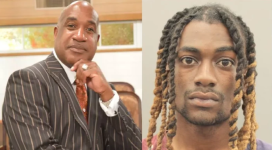Gay marriage is now recognized in the United Kingdom under the official term civil partnership.
Effective on Mon., the "Civil Partnership Act" will give same-sex couples the same rights as heterosexual couples, after the British Parliament approved it on Nov. 18 of last year.
Under the new law, same-sex couples will be given such rights as property, tax, and inheritance benefits that were given to heterosexual couples. They need to first register their intentions with the local councils, wait 15 days, and then are given authorization of the legal status.
Hundreds of gay couples are expected to tie the knot within the coming weeks, according to news reports. The first ceremonies will take place in Northern Ireland on Dec. 19, following with Scotland on the next day, and England and Wales on Dec. 21.
Meg Munn, minister for equality, said the government expected 4,500 couples "partnered" within the first year. Meanwhile, at least 1,200 ceremonies were confirmed, with strong interest coming from Brighton, London, Manchester, Birmingham, Newcastle, and Edinburgh, BBC reported.
Even though Britain will be the fifth country to recognize same-sex couples, the civil partnership will not be a marriage, which countries -- Belgium, Spain, the Netherlands and Canada -- has legalized for same-sex couples.
A civil partnership is formed when a couple signs certain documents in a civil procedure, whereas a marriage becomes binding when the two partners exchange their vows in a civil or religious ceremony.
Christians were divided on the new law, with some who outright opposed the civil partnership, and the other side saying they can accept the law as long there is a distinction between marriage and the registered same-sex partnerships.
The Christian Institute, a British evangelical non-denominational charity that has the support of 2,000 churches and church ministers, was one of the groups who opposed civil partnerships.
"Our position is that we oppose the government’s proposals for civil partnerships. Civil partnerships as an institution will be virtually identical to marriage and would entitle partners to the same status as a married couple," the statement read.
They continued on and said that marriage has always been traditionally defined as a union between one man and one woman.
Therefore, "Civil partnership takes the privileges of marriage and gives them to couple who do not and cannot meet the requirements of marriage," the Christian Institute said.
Back in June 2003, the government held a meeting with respondents on the proposal of civil partnerships. On behalf of the Church of England, whose worldwide Anglican communion is already divided by gay priests, the Archbishops’ Council said that "We believe that it is in the interests of society for marriage to continue to enjoy a unique status," however, they said they will look closely at the government’s assurance that the law "has no plans to introduce same-sex marriages."







